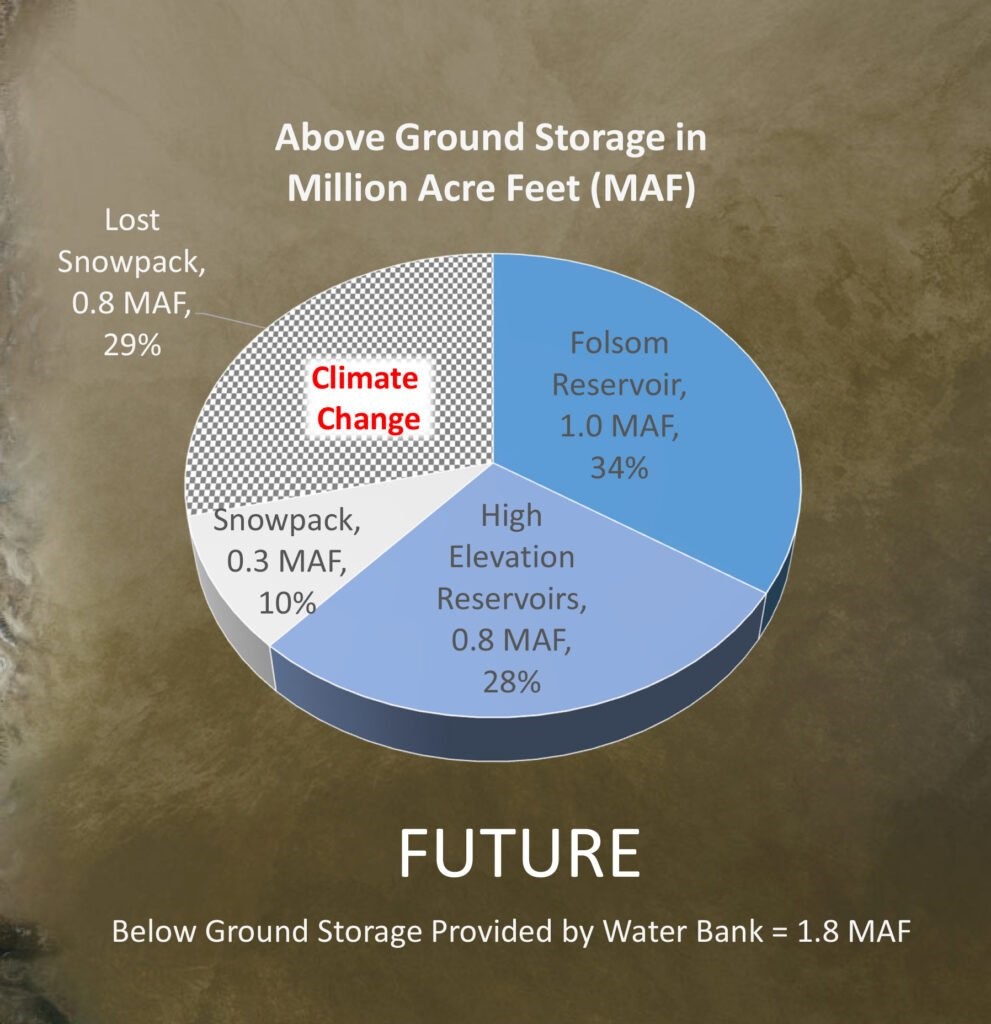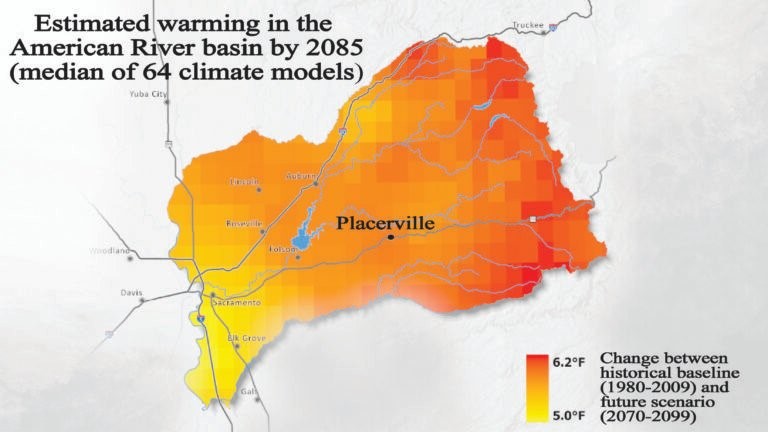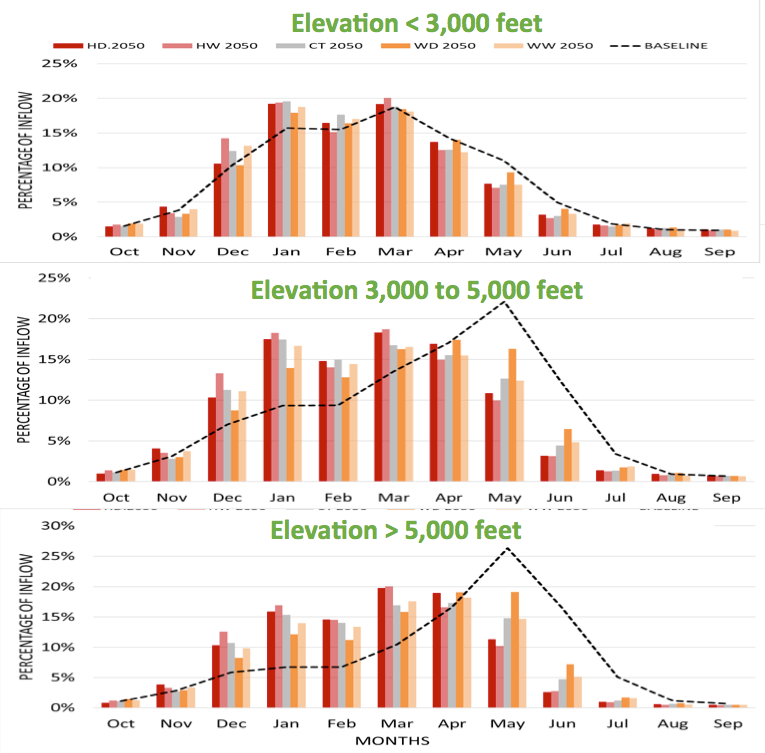Published in the Mountain Democrat January 20, 2021
https://www.mtdemocrat.com/news/water-workshops-consider-climate-change-effects/
By Dawn Hodson
The third of four state water conveyance workshops was held Jan. 12 with over 100 people from different water organizations attending via Zoom. The workshops are being held to give members of the California Water Commission a chance to hear directly from stakeholders about climate-driven conveyance needs and priorities in each of four regions in the state. It also gives the commission a chance to assess a potential state role in financing conveyance projects that can help meet those needs. 
The end product of the workshops will be a white paper with recommendations for state policymakers describing key issues and mechanisms to consider as they weigh how to finance water conveyance infrastructure.
A long list of speakers discussed different aspects of the topic from how climate change is expected to affect the flow of source water to how it’s affecting salmon fisheries.
Jim Peifer, who is the executive director of the Regional Water Authority and Sacramento Groundwater Authority, predicted that the inflow to Folsom Reservoir could occur 30 to 40 days earlier on average by the end of the century due to climate change.
Ken Payne, general manager of the El Dorado County Water Agency, also suggested that changes in historic runoff patterns may result in peak snowmelt occurring 30 to 60 days earlier than at present. That will result in the need to balance upstream flood control with water supply infrastructure.
Payne talked about how climate change will affect conveying water to upstream communities, saying that locally they are expanding the existing coalition of agencies to revisit how to collaborate on issues of conveyance and storage.
Solano County Water Agency Water Resources Principal and Engineer Thomas Pate discussed multiple problems affecting his region including aging infrastructure, poor drinking source water quality, increasing regulatory pressures to protect endangered smelt and diminished long-term resiliency.
Pate said the agency’s biggest issue is conveyance as they have no place to store water. The North Bay Aqueduct (NBA) is part of the State Water Project and provides 40% of the municipal water supply to over 400,000 people in cities in Solano and Napa counties. He said it also has the poorest quality drinking water in the entire State Water Project. “The NBA will become a stranded investment as climate change is acerbated over time,” said Pate.
Jeanne Brantigan, project director of Environmental Flows at the Nature Conservancy, called water a vital habitat for birds that migrate along the Pacific Flyway. She advised stakeholders to capitalize on other investments and lower barriers to move water along.
Thomas Keegan, who is with HELIX Environmental Planning and serves on the board of directors of the American Institute of Fishery Research Biologists, talked about his work with different tribes. Water conveyance is a sensitive issue for the tribes, he noted, because historically the extraction and conveyance of water has not usually benefited them. Saying that many tribes are already engaged in climate change planning and management, he encouraged others to involve them early on in projects.
Moving on to other major water-related issues in the region, Marguerite Patil, assistant general manager of Policy and External Affairs for the Contra Costa Water District, talked about the difficulty in creating interties between the different water districts in the Bay Area. An issue that involves linking supplies to demand, maintenance, etc. and then how to set up the governance to make it all work.
Glen Spain, the Northwest regional director of the Pacific Coast Federation of Fishermen’s Associations, said there is not enough water in the state’s river systems and that most of the water available is of poor quality, which jeopardizes the salmon fisheries. He also noted there are five to seven times more claims to California’s water than there is water. That along with the need to establish minimum instream flows for rivers all needs to be sorted out, otherwise it will devastate watersheds and fisheries in the state, according to Spain. 
Anthony Navasero, a senior engineer with the Delta Stewardship Council, discussed the difficulty in managing the salinity of the delta which is putting more pressure upstream on having to use freshwater to manage the salinity. He said he’s not presently seeing an increase in salinity in the delta but the way the water supply is managed in the future may further tax our resources.
Regina Chichizola, salmon and water policy analyst at the Institute for Fisheries Resources and the last speaker, stated that senior water rights on the Trinity River and the upper Sacramento River were not being respected. An advocate for tribal rights, in addition to talking about conveyance, she wanted to talk about saving water and using it as an instream flow in the area of origin in order to bring back the salmon and restore watersheds that have been deprived of their water rights.

#Water#ClimateAdaptation#ResourceConservation#NaturalResources